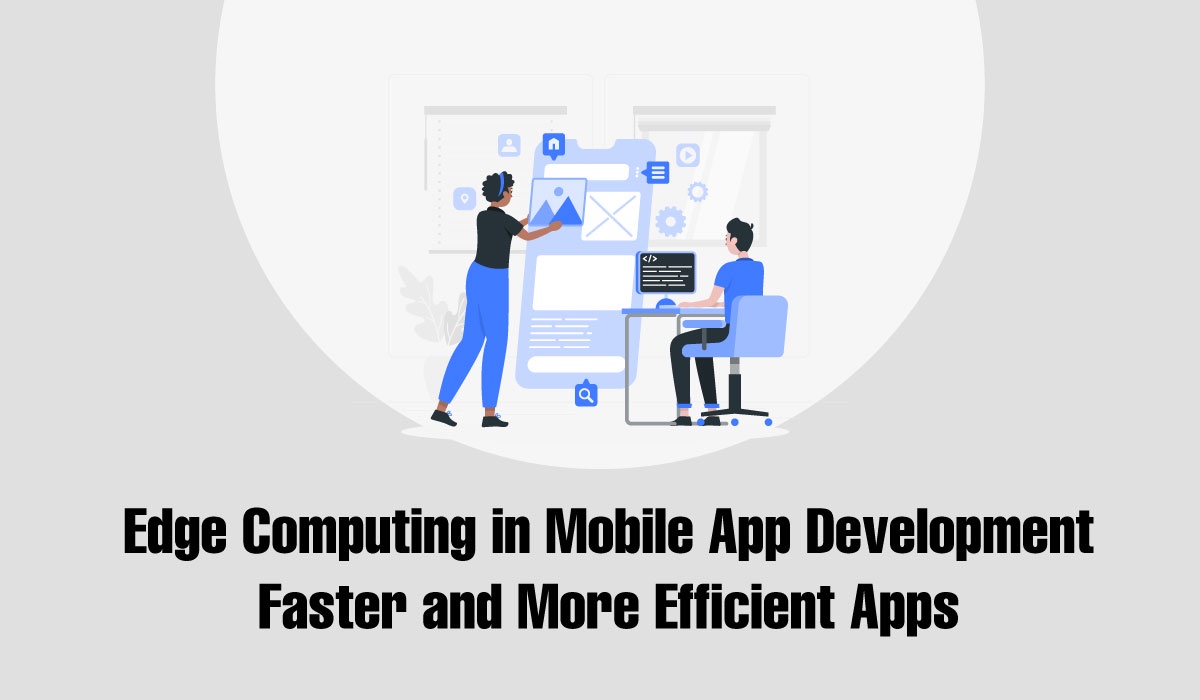In the ever-evolving landscape of mobile app development, the demand for speed, efficiency, and seamless user experience has never been higher. Enter edge computing, a revolutionary concept that is reshaping the way mobile apps are developed, deployed, and experienced by users. Traditionally, mobile apps relied heavily on centralized cloud servers for processing data and delivering content. However, with the advent of edge computing, developers now have the ability to process data closer to the source, right at the edge of the network. This paradigm shift has ushered in a new era of mobile app development, offering faster response times, reduced latency, and enhanced overall performance.
Understanding Edge Computing:
At its core, edge computing involves decentralizing computing resources, bringing data processing closer to the location where it is needed, rather than relying on a centralized data center. In the context of mobile app development, this means that data processing occurs on devices or local servers, bypassing the need to send every request to a distant cloud server. By leveraging edge computing, developers can significantly reduce the time it takes for data to travel from the user's device to the server and back, leading to faster and more responsive mobile apps.
Faster Response Times:
One of the most significant advantages of implementing edge computing in mobile apps is the drastic reduction in response times. Traditional cloud-based apps often suffer from latency issues due to the time it takes for data to travel between the user's device and the remote server. With edge computing, data processing occurs locally, eliminating the need for round-trip journeys to a centralized server. As a result, mobile apps respond almost instantaneously to user inputs, providing a seamless and lag-free experience.
Consider real-time applications like online gaming or video conferencing, where split-second decisions can make a difference. By leveraging edge computing, these applications can deliver ultra-low latency, ensuring that players and participants experience real-time interactions without any noticeable delays.
Enhanced Security and Privacy:
In addition to speed, edge computing enhances the security and privacy of mobile apps. By processing sensitive data locally, rather than transmitting it to a remote server, the risk of data breaches and unauthorized access is significantly reduced. This approach is particularly beneficial for applications dealing with sensitive user information, such as healthcare apps or financial services.
Moreover, edge computing allows for data anonymization and aggregation at the source, ensuring that only relevant, non-sensitive information is transmitted to central servers for further analysis. This level of data filtering and encryption adds an extra layer of security, instilling user confidence in the app's privacy practices.
Optimized Bandwidth Usage:
Edge computing also plays a crucial role in optimizing bandwidth usage, especially in scenarios where network connectivity is limited or unreliable. By processing data locally, mobile apps can minimize the amount of data that needs to be transmitted over the network. This is particularly advantageous for users in remote areas or regions with poor network coverage, where bandwidth conservation is essential for app functionality, advised Webomindapps - a mobile app developer in Bangalore.
Real-World Applications:
The implementation of edge computing in mobile app development has opened the door to a wide array of innovative and practical applications across various industries.
1. Healthcare:
In telemedicine apps, where real-time monitoring and instant communication are vital, edge computing ensures that patient data is processed swiftly and accurately, leading to timely medical interventions and enhanced patient outcomes.
2. Retail:
Retailers are using edge computing to personalize the in-store shopping experience. By analyzing customer preferences and behavior patterns in real time, retailers can offer targeted promotions and recommendations, increasing customer engagement and sales.
3. Smart Cities:
In smart city initiatives, edge computing enables the efficient processing of data from sensors and IoT devices. This data can be utilized for traffic management, environmental monitoring, and public safety applications, leading to more sustainable and safer urban environments.
4. Industrial IoT:
Industries are leveraging edge computing to monitor equipment health and predict maintenance needs. By analyzing data at the edge, manufacturers can reduce downtime, increase productivity, and extend the lifespan of machinery.
Challenges and Considerations:
While the benefits of edge computing in mobile app development are clear, there are challenges that developers need to address. Ensuring seamless integration with existing infrastructure, managing security protocols, and optimizing resource utilization are crucial considerations. Additionally, developers must strike a balance between local processing and cloud interaction to achieve optimal performance and user experience.
Conclusion:
Edge computing has emerged as a game-changing technology in the realm of mobile app development. By processing data closer to the source, mobile apps can deliver unparalleled speed, efficiency, and security. As industries continue to embrace the potential of edge computing, we can expect a wave of innovative apps that redefine user expectations and transform the way we interact with technology. Embracing this paradigm shift, developers are poised to create a new generation of mobile apps that are not only faster and more efficient but also capable of revolutionizing entire industries. In a world where every millisecond counts, edge computing stands as a beacon of innovation, illuminating the path to a future where mobile apps operate at the speed of thought.


No comments yet